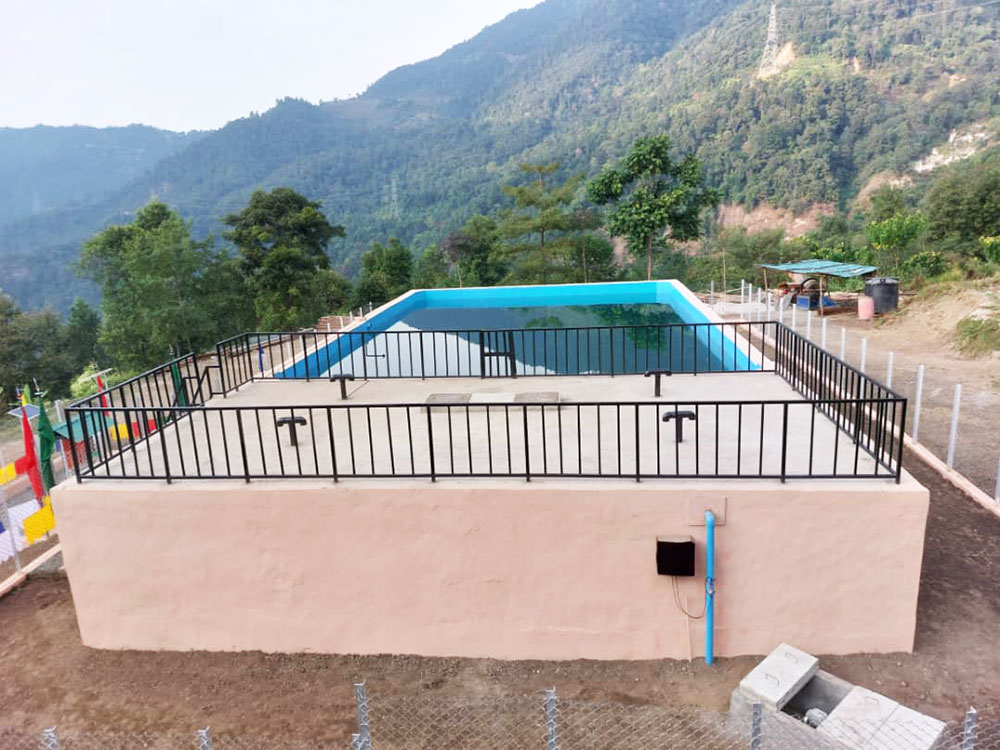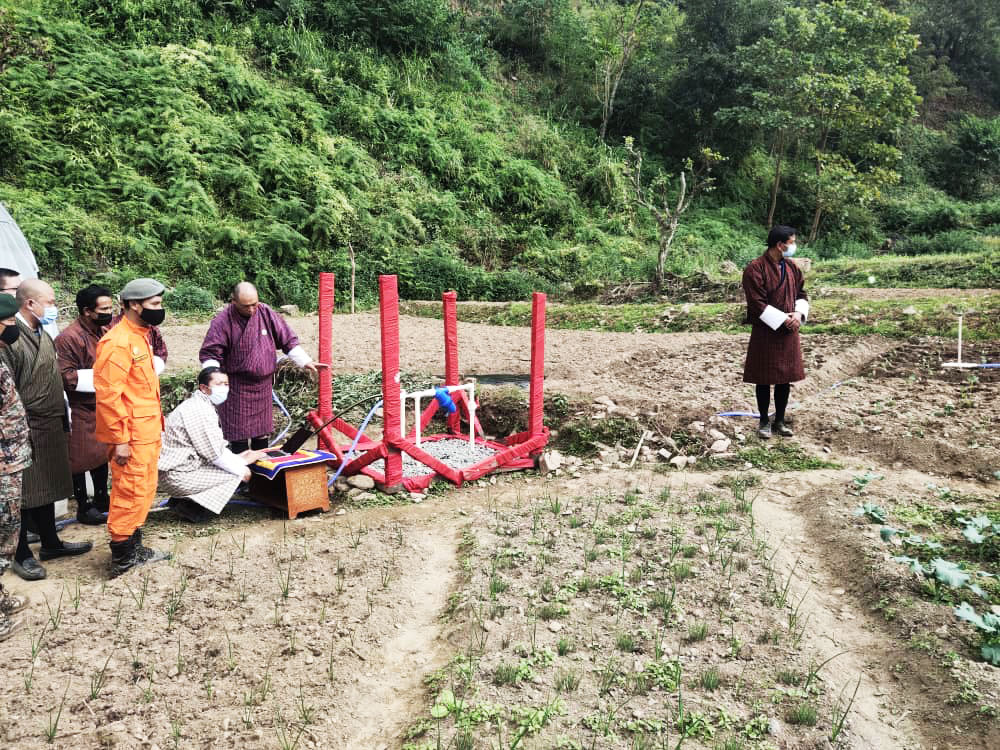Choki Wangmo | Tsirang
Approximately 600 people from 72 families in Tsirang celebrated a major transformation of their lives yesterday with the launch of the country’s first and largest integrated water supply pilot project. The water supply brings them fresh drinking water and irrigates about 200 acres of agricultural land in Dangreygang chiwog of Semjong gewog.
Officials of His Majesty The King’s secretariat, the government, DHI, the dzongkhag, and local government joined the people as Prime Minister Dr Lotay Tshering inaugurated the Nu 28.24 million project, to be managed by the local government.
The deeper significance of the event is that Semjong is the second pilot project executed under the De-Suung National Service Water Project initiated by His Majesty The King in 2020. About 50 de-suups, a mix of qualified professionals, Class 10 and 12 students, and youth who lost their jobs because of the Covid-19 pandemic, worked as a closely coordinated team since November of last year to build the highly automated water supply system.

The project benefits 72 households in Dangreygang chiwog
His Majesty The King called on young Bhutanese to join the process of nation-building amidst the Covid-19 pandemic. His Majesty highlighted the potential for youth to develop water projects, given the importance of a safe and reliable water supply for the people and the nation. About 3,500 de-suups have since been trained in water resource management and have completed 19 water projects, with another eight nearing completion, in the 20 dzongkhags.
Project coordinator Sonam Jamtsho explained that 700,000-litre reservoir and integrated water intake and sand extrusion structures are built with watershed protection and bioengineering work along the pipeline and improved field application systems like sprinkler and drip irrigation.
A key component of the project is an automation system to operate and monitor the scheme. Using the monitoring and control system developed by DRIVE (DHI Research and Innovation Venture Excellence) and the irrigation scheduling system developed by Ministry of Agriculture and Forests (MoAF), the Semjong water supply scheme is the first large scale automated system where the operator and users can remotely check the availability of water in the reservoir, the flow of water in the network, and control the inflow and outflow of water from the reservoir into the farmland which is divided into eight distribution zones. Sensors and actuators have been installed for real-time monitoring and control, which can be visualised through a web application developed for the project.
Gewog officials have been trained to operate the automated system which will improve water use efficiency. The entire system, which is cloud-based, can be monitored and controlled from a mobile phone.
Villagers are visibly thrilled and inspired. Farmers have formed the Dangreygang Kuenphen Water Users Group and also plan to cultivate about 14 acres of land with winter vegetables. They look forward, literally, to a new life by converting fallow land into agricultural land, especially for winter crops. The dzongkhag agriculture office has initiated a support programme for the villagers of Dangreygang Chiwog through which varieties of vegetable seeds, fruit tree saplings, greenhouses, and mulching plastic sheets were provided, with demonstrations on the use of new organic technologies.
Farmer Dorji says that they will be grateful for the rest of their lives. Kubir Prasad, encouraged and hopeful like his neighbours, plans to work hard to earn the gift from the Throne. Rinchen Zangmo, 56, who settled in Dangreygang 15 years ago, said that water shortages have been a major problem for the community. It had become crippling in recent years and the farmers could not farm their vegetables and cardamom.
The Prime Minister, who commended the de-Suups for their dedication and hard work in the service of the people, awarded medals and certificates of appreciation to the de-suups who built the project under the command of Lt. Tshering Dorji of the RBA and technical supervision of project engineer Tshering Wangchuk from Tsirang dzongkhag.
Tshering Wangchuk said that he was worried at the start of the project. “But within the span of a year I learned different types of skills. I can now work on other projects,” he said.
De-suup Pema Zangmo also plans to work in similar projects in the future. In the difficult process of lifting heavy loads and walking long distances through thick forests, she gained experience in construction planning and using complex machines and technologies. “Young people should come forward to learn new skills,” she said.
The Prime Minister urged the people to take ownership of the project. He said he was optimistic that, with the various initiatives underway in the country, Bhutan will develop expertise in water management and become a centre of excellence.
“His Majesty is taking care of us,” said Rinchen Zangmo.


